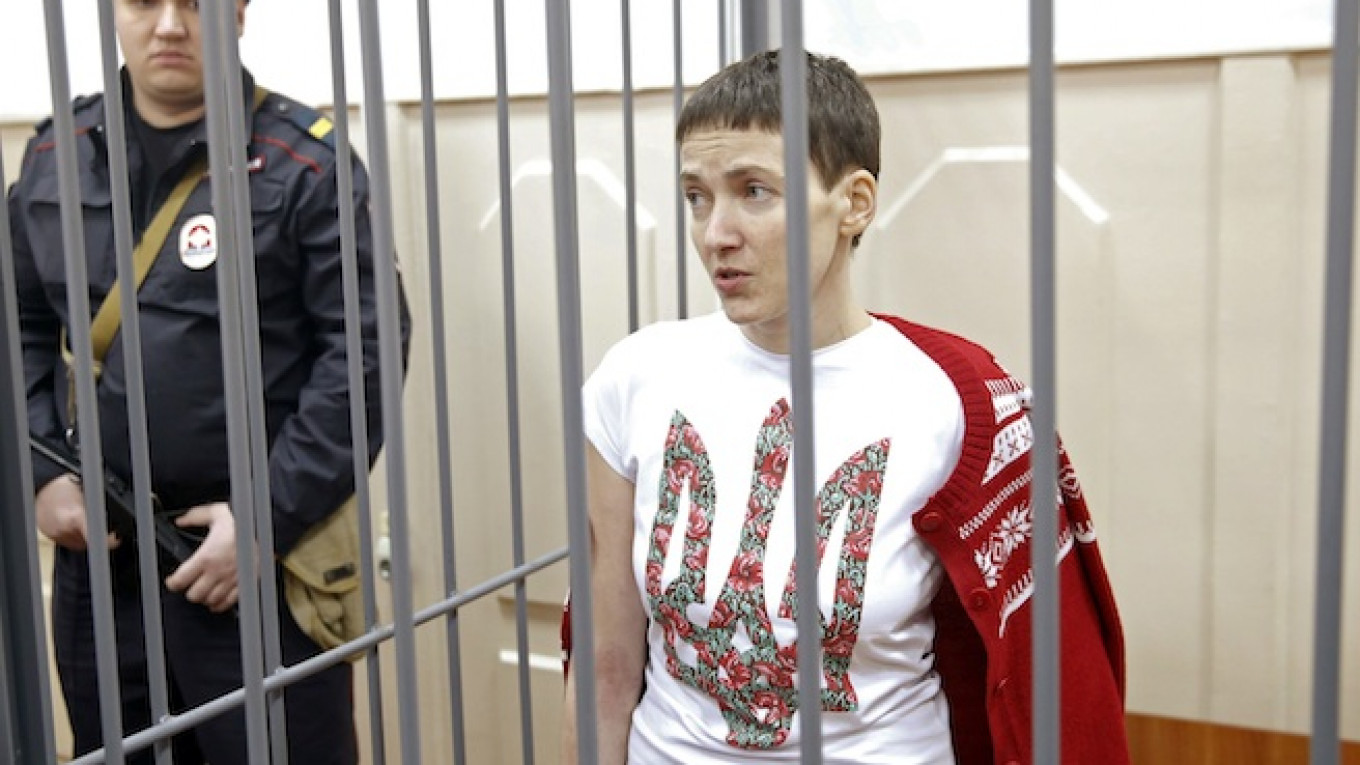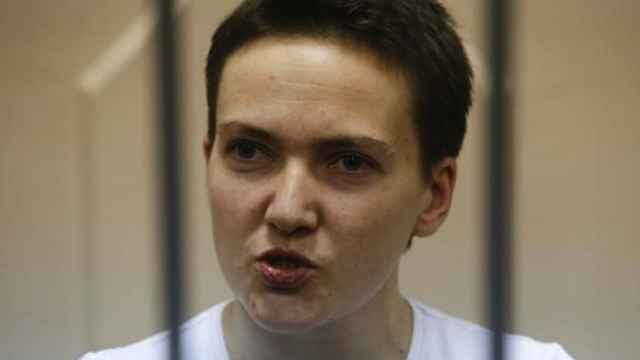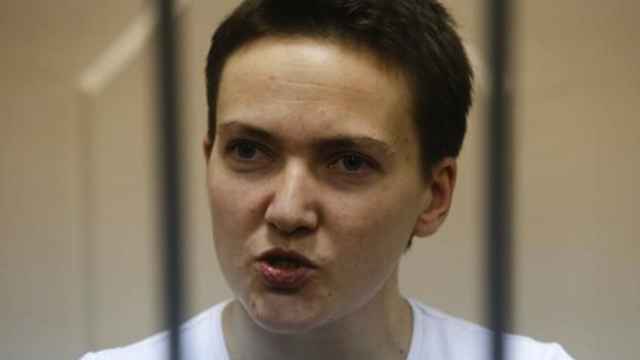The hunger-striking Ukrainian pilot jailed in Russia could die within days, a member of the Kremlin's human rights council said Friday.
Nadezhda Savchenko has started to decline glucose injections and her health is failing fast, rights advocate Yelena Masyuk wrote in an appeal published on the Presidential Council on Civil Society and Human Rights website, arguing that Savchenko should be released from jail and put under house arrest.
Masyuk, who visited Savchenko in jail, appealed to her fellow council members in the statement to petition for the pilot to be transferred to the Ukrainian Embassy in Moscow or an apartment rented in the city by her lawyers.
Savchenko began declining glucose injections — which had been her main nourishment during the hunger strike, now in its third month — about two weeks ago, Masyuk said in the statement.
The health of the 33-year-old pilot has declined rapidly, she said. "Serious problems with her internal organs are beginning. Nadezhda Savchenko could die within days," she wrote in the statement.
Lawyers have been expressing concerns about Savchenko's sharply deteriorating health over the past weeks, underscoring Western and Ukrainian calls for her release.
Moscow accuses Savchenko of abetting the killing of two Russian journalists who died in artillery shelling in eastern Ukraine last June. She was captured by pro-Moscow forces in eastern Ukraine and handed over to Russia last summer.
A Message from The Moscow Times:
Dear readers,
We are facing unprecedented challenges. Russia's Prosecutor General's Office has designated The Moscow Times as an "undesirable" organization, criminalizing our work and putting our staff at risk of prosecution. This follows our earlier unjust labeling as a "foreign agent."
These actions are direct attempts to silence independent journalism in Russia. The authorities claim our work "discredits the decisions of the Russian leadership." We see things differently: we strive to provide accurate, unbiased reporting on Russia.
We, the journalists of The Moscow Times, refuse to be silenced. But to continue our work, we need your help.
Your support, no matter how small, makes a world of difference. If you can, please support us monthly starting from just $2. It's quick to set up, and every contribution makes a significant impact.
By supporting The Moscow Times, you're defending open, independent journalism in the face of repression. Thank you for standing with us.
Remind me later.






